The automobile factory was nothing before the assembly line. It was slow. Men built one car at a time. Then the assembly line started, and it was never the same. It went fast. It was a car, then another car, and they came off the end of the line one after the other.
This historic change in manufacturing is analogous to the transformative impact of OpenAI’s latest innovation – customizable versions of ChatGPT, known as GPTs. Unveiled on November 6, 2023, these GPTs represent a significant leap forward, enabling any user to tailor ChatGPT for specific tasks or interests without needing coding skills. This democratization promises to transform how we interact with AI.
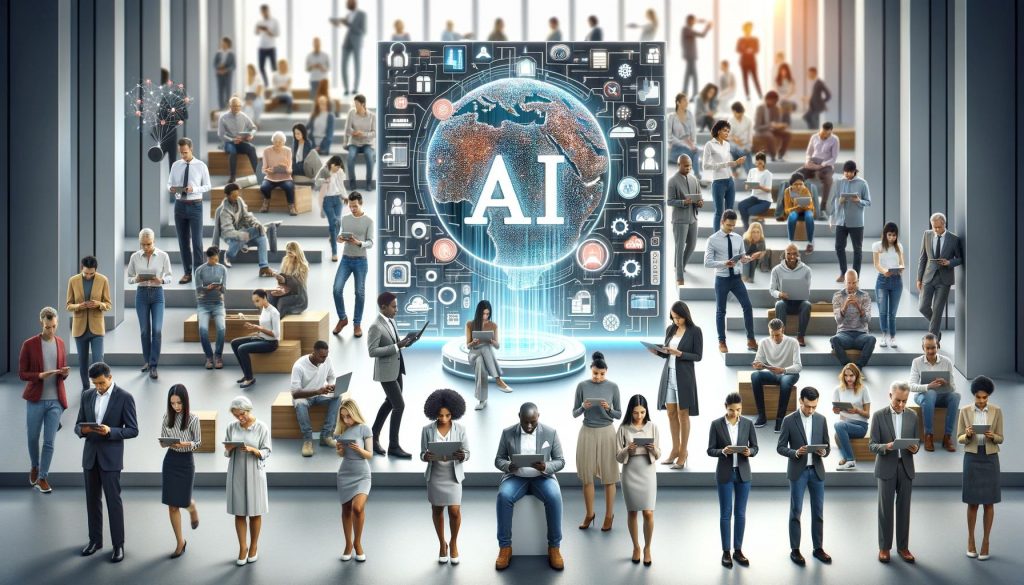
Like Ford’s assembly line, GPTs radically accelerate and expand what is possible, allowing easy creation of customized AI tools. With GPTs, anyone can become an AI developer, designing assistants to enhance daily life, work efficiency, and creative pursuits. It is the assembly line for AI – enabling faster, multidirectional progress. Where before there was slow, manual work, now there is scale, automation, and customization.
Democratizing AI: How GPTs Unlock Adoption
GPTs have the potential to radically expand AI adoption by putting customization and creation abilities in the hands of anyone, not just expert developers. This represents a seismic shift, empowering domain experts in all fields to mold AI to their specialized needs.
For example, doctors could use GPTs to create medical assistants tailored for tasks like screening patient history, lab results, and symptom reports to surface possible diagnoses for a human physician to review. Lawyers might build AI paralegals capable of analyzing case files and precedents to inform trial strategy and arguments. Every day people can now customize ChatGPT to provide personalized tutoring on topics of interest or generate creative ideas on command.
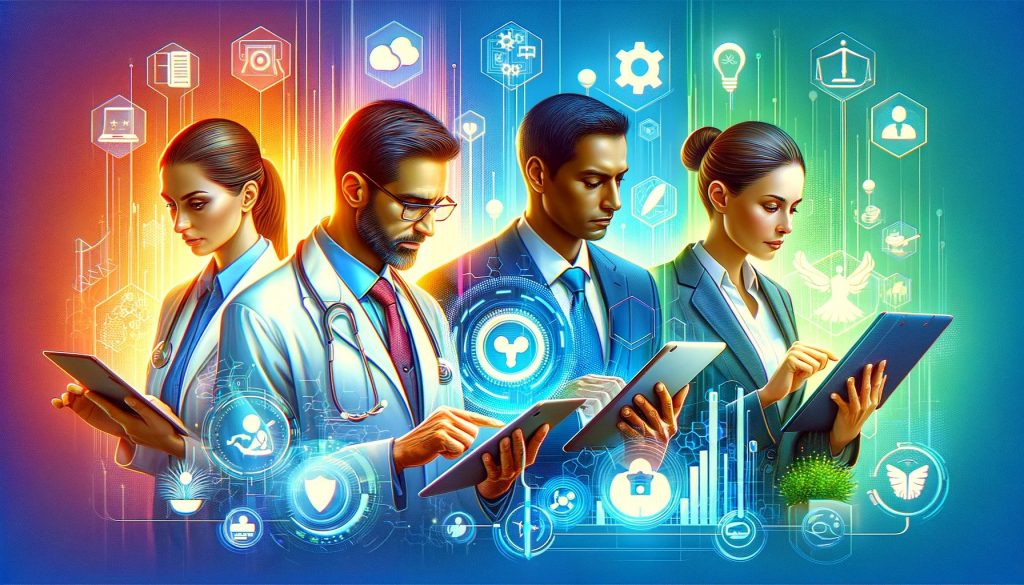
The simple, conversational interface enables users with no coding skills to instruct and shape a GPT by providing examples, key materials to ingest, and explicit guidelines. OpenAI further simplifies the process by offering templates for common customization goals like tweaking tone, modifying the level of detail, and constraining allowed outputs.
By handling the technical complexity behind the scenes, GPTs make AI approachable. Users need only articulate high-level desires in natural language for the system to enact desired customizations. This intuitive model makes the potent capabilities of AI accessible to all.
The ability to readily share creations expands possibilities even further. Once customized, GPTs can be published publicly to the GPT Store for others to find and use for their own needs. This viral potential could rapidly accelerate niche adoption across industries. Even proprietary GPTs restricted to internal use in organizations unlock major productivity gains.
GPTs shift AI development from an exclusive discipline requiring specialized skills to a universally available tool. They are poised to make applied AI available to the masses. The impacts on efficiency and human augmentation could be immense as this technology propagates across domains.
The Disruption Created By Democratized AI
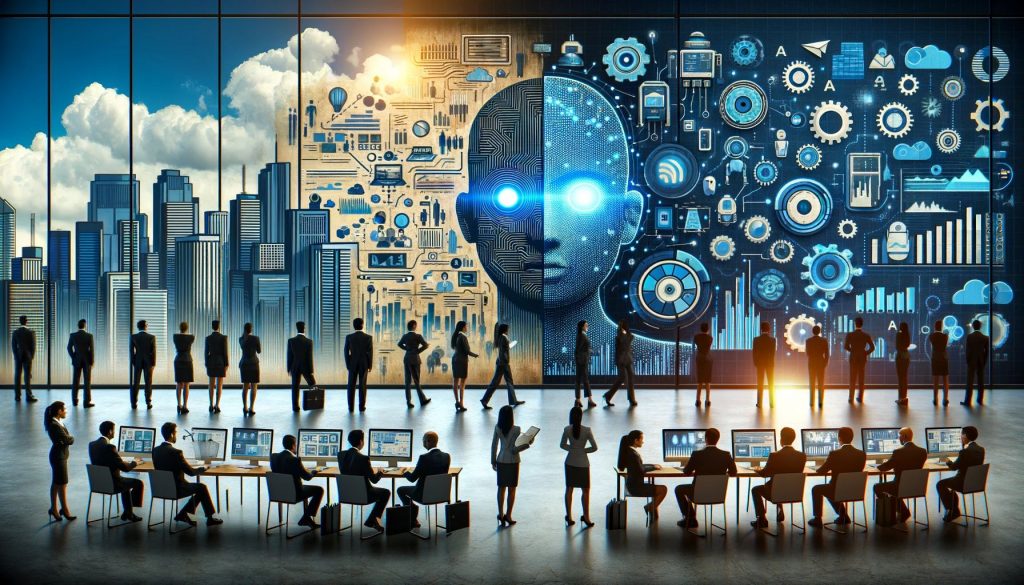
While a boon for widespread adoption, GPTs’ democratization of AI poses major threats to companies betting on proprietary access to advanced models. By putting customization in users’ hands, OpenAI disrupts vendors offering basic search and QA solutions. The rising tide may not lift all boats equally.
Startups supplying simple document retrieval and question-answering tools face new problems. With easy access to customization, users can now build niche information assistants themselves rather than relying on generic SaaS offerings.
This especially threatens companies without deep vertical expertise or unique data sources. Why pay for commoditized QA services when you can tutor a GPT for your specific needs?
Platforms relying on wrappers, integrations, and basic customization layers atop OpenAI models are also at risk. If core functionality becomes table stakes, they must rapidly advance capabilities to survive.
For example, an equity research platform delivering analyst reports via summarized, extracted insights would see diminishing value. With GPTs, clients can build similar or better functionality themselves tuned to organizational knowledge.
Even vendors with proprietary training data may find their advantages eroded. Models like GPT-3.5 available through APIs democratize underlying generative power. Datasets can only provide so much leverage against mass pre-trained models.
GPTs force companies to either move up the complexity stack to stay ahead or find durable niche use cases immune to commoditization. They underscore the vital need for vertical expertise, advanced functionality, and institutional knowledge – moats not easily replicated by accessible AI. For those relying on basic tools, the road ahead is rocky.
Navigating the Promise and Peril of Enterprise AI Adoption
Implementing GPTs needs a nuanced approach that balances tremendous opportunities against profound risks of misuse and overreliance.
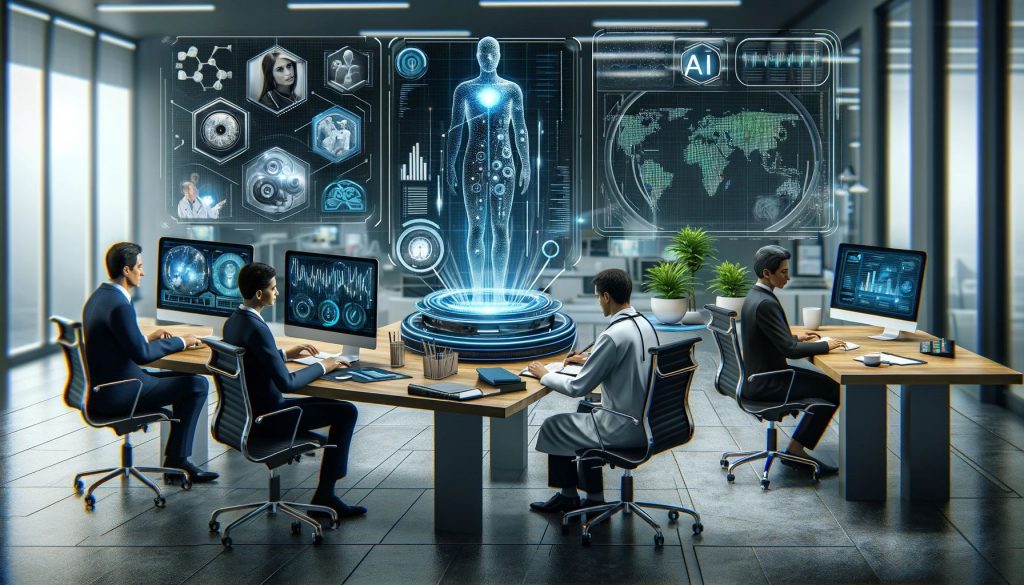
On the opportunity front, GPTs can streamline workflows by automating high-volume tasks like customer service inquiries, status reports, and document drafting. Subject matter experts in departments like engineering, marketing, product support, and more can build customized assistants without coding by providing relevant training materials from their domain. This allows embedding institutional knowledge into AI tools managing routine activities, freeing up human focus for judgment-intensive work.
However, adopting GPTs without disciplined governance risks permanently deskilling organizations and eroding core competitive advantages over time. If insurance companies fully delegated underwriting, actuarial analysis, and claims processing to external AI systems, the ability to make subjective risk assessments could atrophy internally. Agents would lose touch with market realities and trends if purely reliant on generic tools.
As OpenAI’s corporate knowledge corpus expands through ingesting documents like GPT training data, competitive differentiation requires working harder to sustain institutional strengths that the public models lack. This includes nurturing proprietary customer insights, analytical capabilities, and real-world judgment not easily replicable by AI. If all decision-making is delegated to external tools like ChatGPT, the experiential wisdom underpinning sound judgments could deteriorate.
By centralizing data and documents, OpenAI reinforces network effects and positions itself as a potential lock-in risk. Companies relying entirely on its tools across business functions could find it increasingly difficult to migrate away. This sticky dependence could efficiently displace in-house technical capabilities over time.
Features like document uploading and API access also create major vulnerabilities if governance is lacking. Rigorously tracking what data leaves the organization, restricting access, extensive testing, and other security controls are critical to avoid amplified risks from integrating GPTs.
In summary, realizing GPTs’ automation promise requires judicious adoption balancing productivity with sustained investments in human talent, data stewardship, technical capabilities, and institutional knowledge – assets not easily replicated by any AI.
The Need for Customized Insurance AI with Human Oversight

Applying AI like GPTs in insurance warrants careful governance and expertise beyond generic tools. Both the broader insurance field and pension risk transfer domain specifically carry risks requiring specialized caution and oversight.
Overall, insurance is a highly regulated, safety-critical industry where AI deployment has profound impacts on policyholder welfare. Areas like claims assessment, underwriting, and fraud detection involve subjective judgment – simply relying on generic AI carries dangers. Deep insurance expertise is vital to building customized tools factoring in domain nuance and ethics.
For example, automated claims processing could deny legitimate cases if relying solely on AI lacking experienced fraud assessment. Rigid underwriting models could violate fairness regulations by not accommodating unusual circumstances. Impacts may span financial hardship, delayed medical care, and more.
Equally crucial is safeguarding policyholder data privacy when using information to train models. Blindly supplying personal data to generic third-party AI systems creates unacceptable risks for both insurers and consumers.
The pension risk transfer (PRT) field carries added complexity given managed retirement outcomes. Tools like longevity risk calculators and annuity optimization models require deep actuarial and regulatory expertise. Annuity underwriting demands just as much wisdom as life insurance underwriting, necessitating human oversight.
Across insurance, a balanced approach combining institutional strengths with tailored AI tools is imperative. While assistance like GPTs offers gains, wholesale outsourcing of judgment should never occur. Nuanced integration preserving expertise results in responsibly maximizing benefits.
Customizing GPTs in Specialized Fields Requires Substantial Domain Expertise
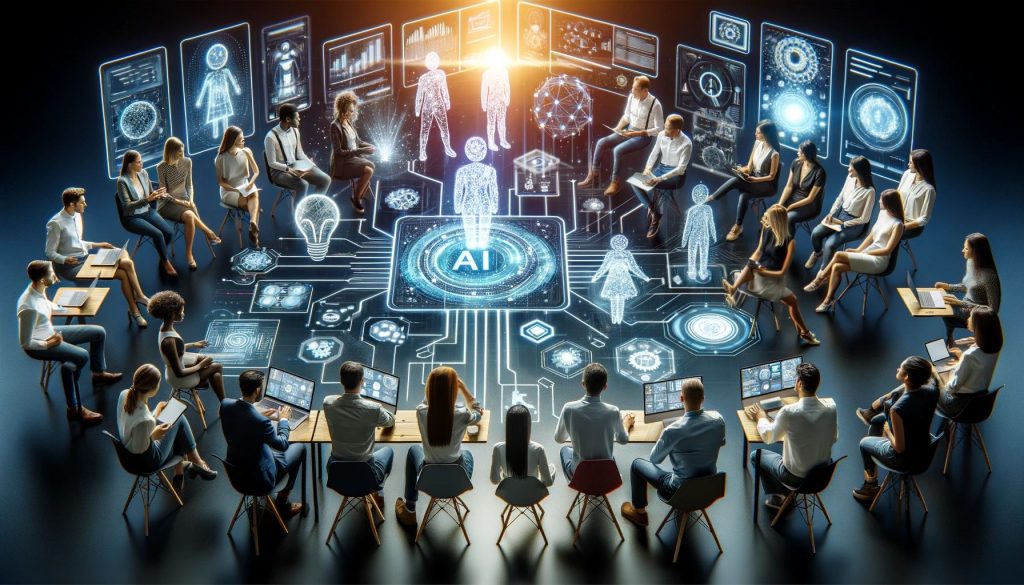
While GPTs promise to boost the accessibility of AI, specialized industries cannot wholly rely on generic GPT customizations alone to responsibly automate complex tasks. Sectors like law, medicine, engineering, and finance handle intricately risky and regulated scenarios requiring deep human expertise to judiciously tailor GPTs.
For example, attorneys aiming to build customized GPTs must intimately understand volumes of case law, statutes, precedents, and regulations to account for legal risks. Without sufficiently nuanced training an uncustomized legal GPT fails to weigh liability, provide sound counsel, assess case outcomes, or mitigate ethics concerns. This exponentially elevates malpractice dangers as flawed GPT guidance gets presented as authoritative.
Doctors face similar challenges in creating medical GPTs without expertise. Responsible customization requires integrating research insights across specialties to account for patient variables, treatment plans, diagnostics nuances, and clinical trial outcomes. Generic medical GPTs lack situational awareness, give imprecise guidance, and risk patient harm without rigorous customization factoring ethics and health outcomes.
Engineering disciplines require even greater rigor given public safety implications. Customizing design and analysis GPTs mandates both technical judgment and skepticism to validate outputs against physical constraints before implementation. Non-expert review risks missing critical flaws leading to catastrophic failures. No generic engineering GPT can replace human prototyping and outcome modeling, at least not yet.
Even finance warrants prudence with GPTs like robo-advisors. Achieving responsible functionality necessitates market and compliance expertise to weigh tradeoffs beyond pure profit motives, to avoid market volatility or legal violations. Customization should align predictions, forecasts, and trading algorithms with ethical practices given broad impact.
Implementing GPTs in specialized fields without complementary human expertise constitutes gross negligence given the associated risks. While generic GPTs assist narrowly, customized solutions combining institutional strengths with tailored AI enable responsibly maximizing benefits in intricate domains. There are no shortcuts – expertise matters.
Charting the Course Ahead
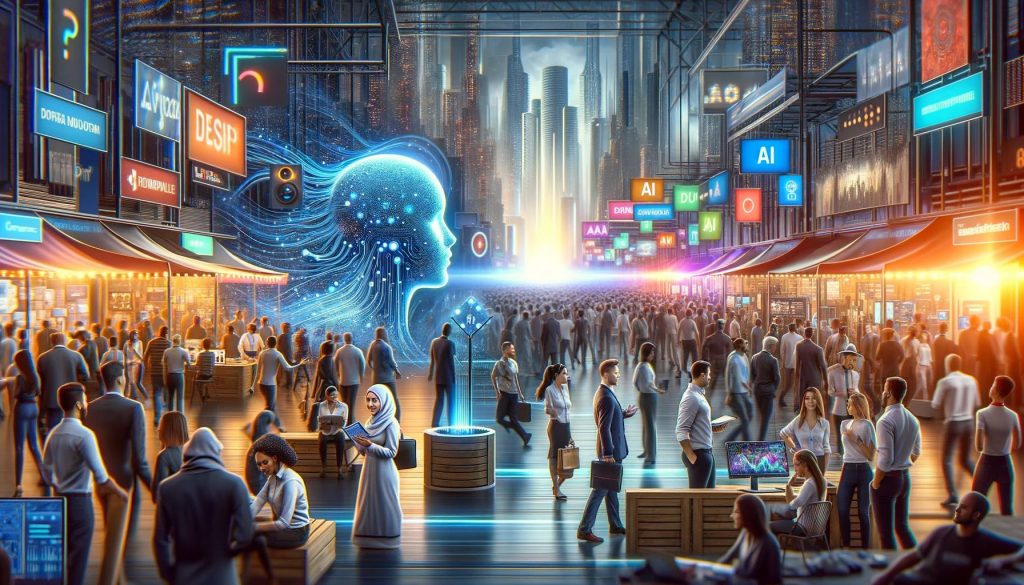
GPTs mark a new era – an AI assembly line transforming individual ability to shape practical tools.
Handled recklessly, GPTs risk amplifying harm through misinformation, security lapses, and ethical breaches. We must focus not just on what technology can do, but what it should do. If humanity’s values are embedded within GPTs, the light will outshine the shadows.
As we embrace this new era of personalized AI, one thing is certain: the future of artificial intelligence is not just about more advanced technology. It is about technology that understands us better and molds itself to serve humanity in a more profound and tailored way. OpenAI’s custom GPT models are not just a step but a giant leap in heralding a future where AI is not a one-size-fits-all solution, but a versatile, adaptable ally in our quest for progress and innovation.
Do check out Carver Agents’ RegWatch – our new AI solution for real-time contextual regulatory risk intelligence, built for risk and strategy executives. Think of it as agentized mid-market LexisNexis. Visit https://carveragents.ai/.



